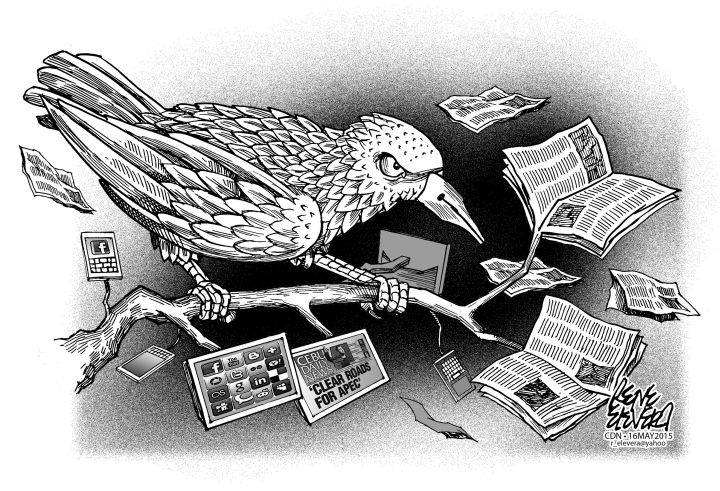Aside from Labor Day last May 1, Mother’s Day on and the Flores de Mayo (Flowers of May), another important occasion earlier this month is the World Press Freedom Day last May 3.
There were two significant events that preceded its annual observance. First was the murder of Inquirer correspondent Melinda Magsino who was shot down while leaving her apartment last month. Then there was the layoff of employees of GMA regional stations across the country which they said is part of a streamlining strategy aimed at raising revenues and enhancing their competitiveness especially in light of next year’s elections.
While the country’s media community is one in condemning Magsino’s murder, it also showed solidarity with the employees, not a few of whom had spent several years working in the network only to be told out of the blue that their services were no longer needed.
In fairness to the network management, the laid-off employees will receive their compensation. While Magsino wasn’t relying on her income as correspondent, she probably didn’t expect that she would have antagonized someone enough for them to exact deadly revenge.
And while those in the media profession cannot simply ignore or sweep under the rug the economic realities and real dangers of violence against their ranks, they are also kept busy having to live up to the expectations of the public who view them as representative of and vanguards of humanity’s right to freedom of speech.
In a speech at the induction of officers of the Kapisanan ng mga Brodkaster ng Pilipinas (KBP)-Cebu Chapter, Sen. Ferdinand “Bongbong” Marcos called on the media not only to become “watchdogs” but “playmates” who entertain the public.
Those old enough to have experienced the Marcos years may think it strange that his heir speaks of freedom when the late strongman imposed Martial Law.
But as dyAB station manager Leo Lastimosa pointed out in his broadcast last Monday, the KBP was formed under the Marcos regime through the efforts of the late journalist Teodoro Valencia who urged Marcos to allow it to self-regulate.
Decades have passed and while some of the threats to press freedom like violence, corruption and economic sustainability of the media outlets remain, there are new tools and allies such as the Internet, and challenges to its reach and viability like social media and, to print in general, the emergence of new technology that renders paper and ink nearly obsolete.
Media outlets have much to say on the issues confronting their continued existence and relevance in a world that is increasingly interconnected and disposing of boundaries that are physical, legal and cultural.
While freedom of the press is essential, it doesn’t reduce the gratitude that the country’s media profession has for the public’s continued support. For it is the public that media draws its strength from.
The public is media’s continued source for motivation and inspiration, and purpose for being.
Disclaimer: The comments uploaded on this site do not necessarily represent or reflect the views of management and owner of Cebudailynews. We reserve the right to exclude comments that we deem to be inconsistent with our editorial standards.

